
Ex-U.S. Ambassador Taylor: "Ukrainian People want to see corruption attacked"
Former Ambassador of the United States to Ukraine William Taylor has told UNIAN of the prospects for Washington’s stance toward Ukraine after the presidential elections, peculiarities of Ukrainian corruption, and mutual benefits of Ukraine-U.S. military cooperation.
Mr. William Taylor, U.S. Ambassador to Ukraine (2006-2009), is one of not so many foreign politicians who can give realistic and reasonable opinion on the situation in our country. After his retirement, he continued to work as an Executive Vice President of the United States Institute of Peace. Mr. Taylor is still paying close attention to the political situation within Ukraine and Kyiv’s international activity. At the times quite difficult for our country, international assistance is very important. The U.S. support of Ukraine in its conflict with a violent and much stronger aggressor, the Russian Federation, is vital indeed.
Mr. Taylor is giving his assessments of the situation in Ukraine and beyond, sharing his professional opinion on the future balances of powers in the world.
So, you’ve been a U.S. Ambassador to Ukraine, thus the country is not new for you. What has changed the most since that time here? What changes can you point out, and can you call it changes for good?
Yes, I was here from 2006 to 2009. That was a period when Ukrainian politicians argued about issues that split people from the East to the West. There was an election between Mr. Yushchenko, who got support from the western part of the country and Mr. Yanukovych from the eastern part of the country. Change since then showed up in 2014 election – there was on one politician, one candidate that won in all parts of Ukraine. So, president Poroshenko was able to appeal to all Ukrainians and that was a big change from the time I was here. And I think it is a progress.
Still, a lot of people are now disappointed with the steps that are undertaken by Ukrainian authorities. Are there particular wrong decisions or actions that you can see?
There were great expectations for Poroshenko, second Maidan – the Revolution of Dignity, had civil society looked for; anticipation of big changes – they were similar to great expectations after the Orange revolution. Civil society had been mobilized, Maidan had been tragic but heroic, and so people expected some changes. My observation is that people wanted more changes more quickly, people wanted to see corruption attacked, people wanted to see all people treated the same; whether you were very rich or not very rich, big business people should not get special privileges. All these expectations were healthy, right expectations. And the previous governments took some difficult steps and made some improvements. The current government is also taking some difficult steps.
Can you point our something particular?
The one step we can all see easily was the doubling of gas prices. Governments over many years have recognized the problems of holding gas prices artificially low. This, of course, helped low income families to pay their utility bills, so, understandably, people were worried about rising gas prices. But this is a forward step; this is an anticorruption step, in my view. Low gas prices gave rise to great corruption, in particular, when gas was purchased from Russia, people took advantage from different gas prices – low prices to consumers and that “Naftogaz” had to pay Russia, that difference was the source of great corruption. So that was an anticorruption step as well as the requirement from the IMF. So there have been some difficult steps, the subsidies provided to low income people are necessary and have to be continued, and that’s an important piece.
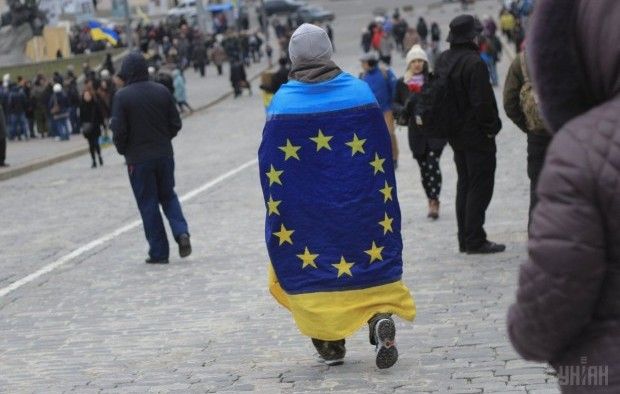
Indeed, it is very important to remember the anticorruption aspect, because it is hard for people to understand what is happening with the gas prices.
There are lots of kinds of corruption in Ukraine and there are a lot of kinds of corruption in the United States, every country has problems with corruption. But in Ukraine there is kind of petty corruption, small corruption – little bribes you have to pay to bureaucrats or little bribes you used to have to pay to the police and now you don’t have to do it anymore. Recently I met the Deputy of Chief of the new Patrol police and was impressed. Within about a year or less they have instituted new patrol police and it is a major accomplishment. Another kind of corruption – mega corruption comes from the natural gas industry, and that is now being addressed.
Moving from this not very popular steps of our authorities to more successful – that got more support. Recent, one of the most discussed event – freedom of Nadia Savchenko. How do you assess this situation? May there be any hidden agreements behind this exchange?
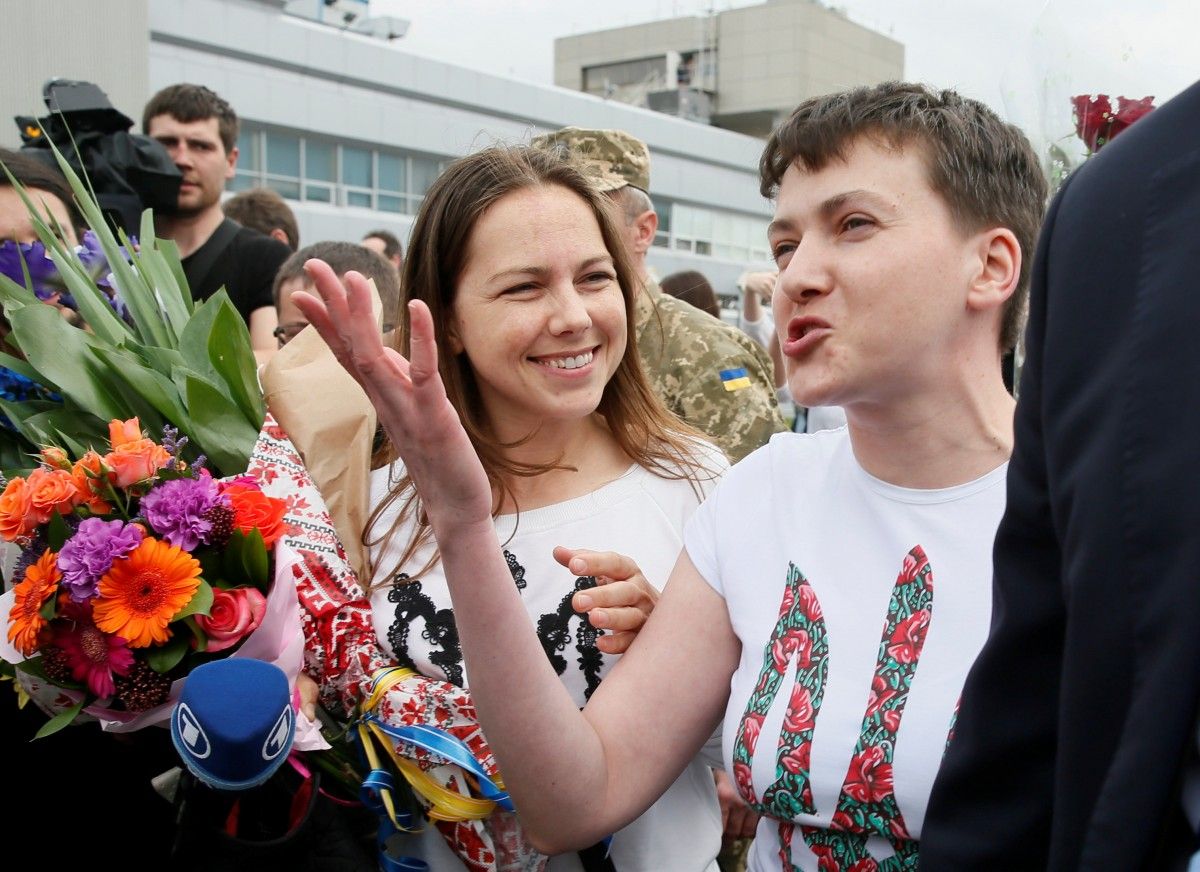
Of course, it is a great happening. And it was an achievement of President Poroshenko to negotiate with the Russians for this exchange of prisoners. Bringing Nadia Savchenko back is a great boost for Ukrainians. I am not aware of any side deal or any understandings. To the contrary, my understanding is that the West, United States and Europe are committed to maintain the sanctions on Russia until they pull out of Donbas, until they pull their troops and their supplies, and their equipment, and their support for the separatists, and turn over the border, the control over the border to Ukrainian forces. We will keep the sanctions on until all of those steps are taken. We will also keep the sanctions on Russian officials who were responsible for annexing Crimea, and we will keep those sanctions on until the Russians return Crimea to Ukraine or satisfactory agreement with Ukrainian government. So I don’t hear any rumors or any hints that there is any deal that was struck for this prisoner exchange.
What was the US role in these negotiations?
There are two formats of negotiations. There is a Normandy format – it is the main channel for negotiating Minsk Agreement, but there is a parallel channel between United States and Russia in full coordination with Ukraine, also with full coordination with France and Germany. So, U.S. Government with the Assistant Secretary of State Victoria Nuland, who was in negotiations with her Russian counterpart to support the Ukrainian view, coordinated very carefully before and after every negotiation session. I think these two formats reinforce each other. We want to bring our point of view and support Ukrainians – the ultimate goal is to get the Russians out of Donbas, get the Russians of Crimea and reassert, reestablish Ukrainian sovereignty, an independence and territorial integrity across all Ukraine.
This is very cheerful. Talking about occupied territories and, in particular, about Crimea, – many European countries and, especially Turkey, now draw attention to growing oppression and ever(n) repressions of the native people - Crimean Tatars, is this topic on the table in the USA?
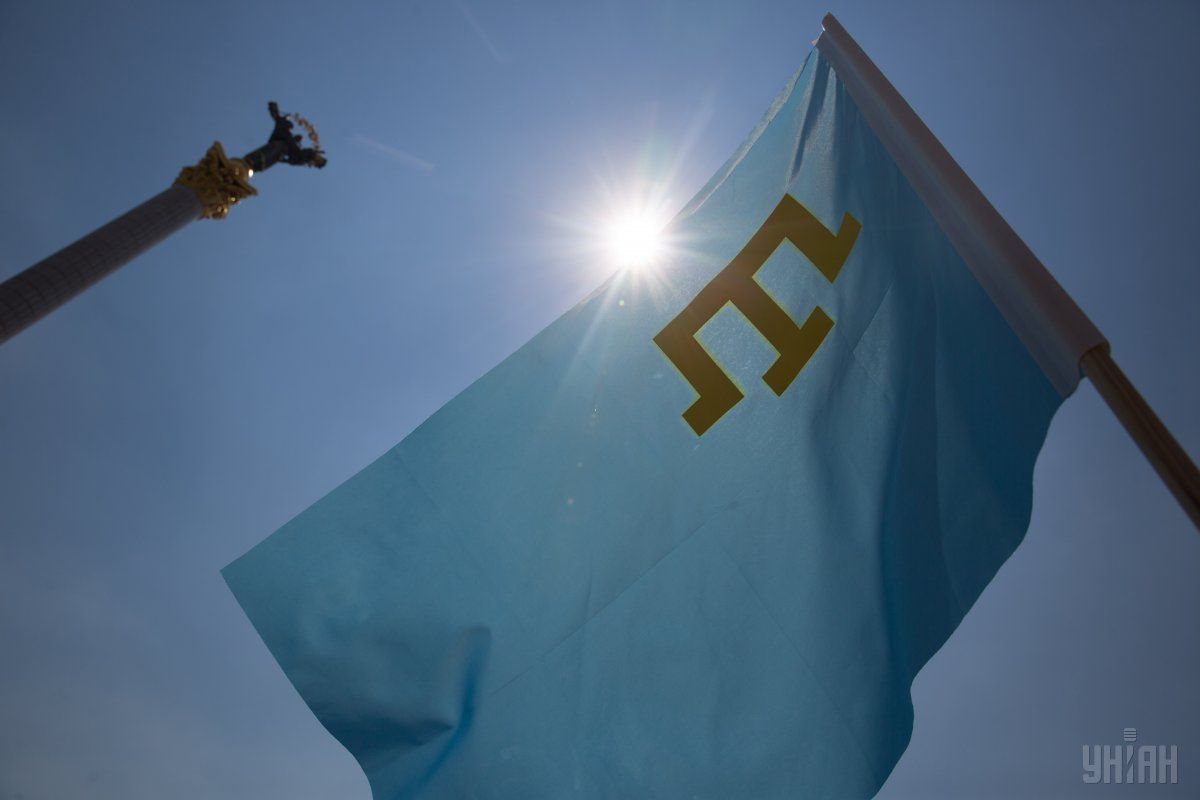
It is on the table in the United States. Some Ukrainians might worry that Americans in the United States have forgotten about Crimea, but this is very much on the minds of Americans. We remember that Crimean Tatars were forced out of Crimea in 1944; we remember that only after Ukrainian independence Crimean Tatars, those who made it, begin to come back from Central Asia. When I was here in 2007 I traveled to Crimea, my wife and I had our 30th wedding anniversary in traveling around the Crimea. I was a great place to be, so we have great appreciation for the Crimean Tatars. We have new Deputy Chief of Mission (an Embassy – UaAw), Deputy Ambassador coming to Ukraine this summer and his wife is Crimean Tatar. It is really a part of the United States view of how Ukraine is rich historically and varied society that is all integrated together.
Moving on. How do you evaluate U.S. policy regarding Ukraine in general: is it soft, is it strict?
Overall, the thrust of U.S. foreign policy is to support Ukraine: certainly politically, support of Ukraine’s attempts to reestablish territorial integrity by isolating the Russians, by supporting the Russians being expelled from G8, strong support for sanctions. I think it is fair to say that the United States led the effort to impose serious sanctions on the Russians after they’ve invaded Crimea and Donbas. So, the political support that we have led, has been important. Financially we have supported very strongly Ukraine’s proposals to the IMF, we have also supported and provided $3bln in loan guarantees to Ukraine. We’ve also provided technical assistance, we were talking earlier about patrol police, and we have provided a lot of support for this reform. And another US policy towards Ukraine is a security support: there are American soldiers in Ukraine right now, training with and training Ukrainian soldiers. Turns out that the Ukrainian army is teaching the American army a lot about what is going on. Thus Ukrainian army has experience fighting Russians now and the American army is taking advantage of that experience, we are learning what it’s like, what kind of tactics the Russians use, what kind of equipment they use. This is part of mutual benefits of training together with U.S. military and Ukrainian military. So, politically, economically, financially and security U.S. support to Ukraine is very important.
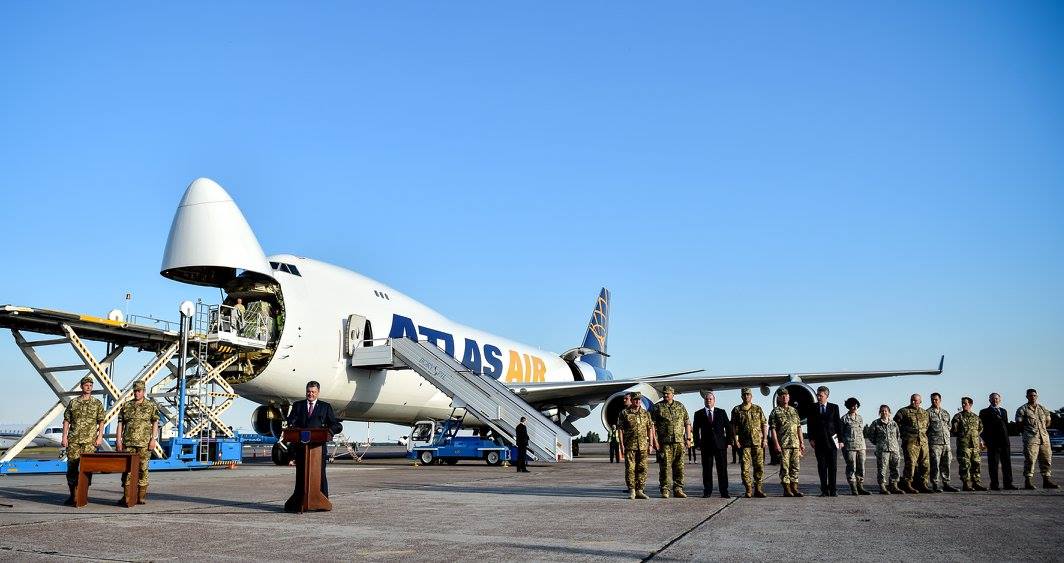
What is the U.S. politicians attitude concerning Ukraine?
The interesting thing about the US politics is that it is by parties: there is strong support for Ukraine from Republicans, strong support for Ukraine from Democrats; strong support from the House of Representatives, strong support from a Senate, strong support from the Administration, strong support from the Congress. So in all different angles and levels there is strong support. There are some differences between the Congress and the Administration, actually one main difference and that is whether or not to provide weapons, lethal weapons to the Ukrainian military. The Congress supports it, the Administration doesn’t, yet. But otherwise there is full support for Ukrainian independence, territorial integrity, sovereignty from all those areas I’ve mentioned.
How can the results of future presidential elections in the USA change the situation?
The presidential campaign in the United States is unusual – one of the candidates has a foreign policy view that is different from all other candidates and is different from all other proposals, and there is one candidate who is admirer of President Putin and, apparently, President Putin is an admirer of Donald Trump. But he is such an outlier, he is so unique that even the Republican Party does not support Donald Trump in his view towards Putin. So this is so unusual, he is kind of the exception that proves the rule, that Americans are supporting Ukraine against the Russians.
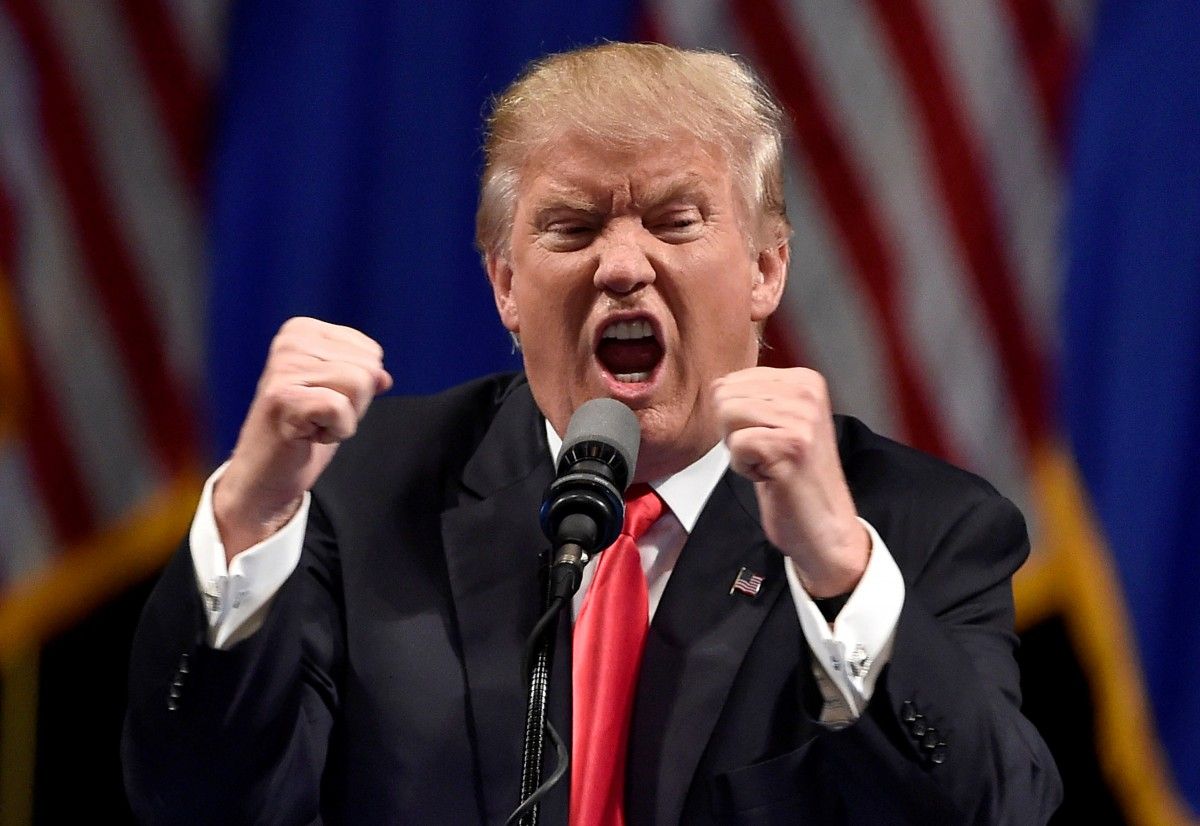
How do you assess his chances to win the election?
I would call it very small. I think that he has alienated so many people, he has insulted so many people, he has demonstrated so little understanding of public policy, of national security policy, foreign policy that he has almost no chance of being elected. But we will see what the American people decide in November. That will be the important poll.
What factors affect the US society, what can make people change their mind or lean on one or other side?
In the United Stated, just like in any other country, economic factors are very important. Other factors are also important – national security issues, concern about newly aggressive Russia is important. The American people see that most of the candidates recognize the challenge and the threat coming from Mr. Putin and they will decide who can best stand up to that challenge, who can address that challenge. So, the economy and security are two important factors in the presidential election.
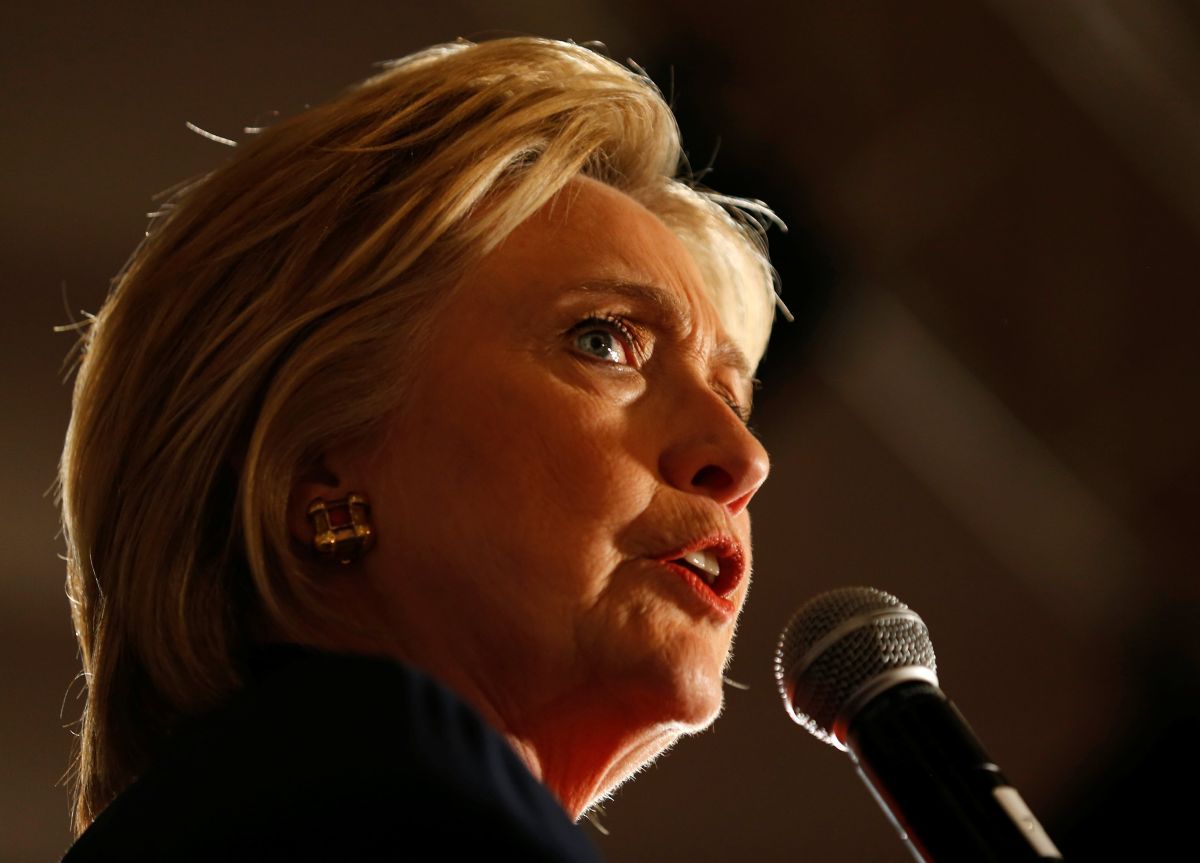
Let’s imagine that Hillary Clinton wins the elections... What can change in the U.S. foreign policy, in particular, toward Ukraine?
There will be continuity in the U.S. policy toward Ukraine, of course, because Hillary Clinton was the Secretary of State for four years, and many of policies that are now in place were part of her policy. She may be a little more aggressive in foreign policy than President Obama. So, I would imagine that the question of lethal weapons for Ukraine will be debated again in Hilary Clinton Administration and the answer might change. But I think strong support for Ukraine that has come under President Obama will continue.
Generally, how interesting is the Ukrainian topic for the Americans?
Americans are interested in Ukraine because there are many Ukrainians who are now Americans, the diaspora. They are in many cities and many states across the country and they are very active, they are active politically. But beyond that Americans have recently have heard more about Ukraine standing up to Russia. Many Americans thought for 20 years that the Russians had left the Cold War and were trying to become a normal nation, maybe even a democratic nation. But all of a sudden the Americans were seeing the Russians are not that, are not trying to join the civilized nations, Russians are not pursuing democratic processes, Russians are invading their neighbors. Many Americans missed the Russian invasion of Georgia in 2008, many people around the world missed that. It was an early signal that Mr. Putin might not be the democrat that we had hoped. But many Americans now see very clearly that in Ukraine Russians are challenging all of the post-World War II agreements and arrangements, and commitments toward democracy, respect for borders, respect for sovereignty. Americans now see that Ukraine is on the frontline, so it is important for them to see Ukrainian succeed, but it is also important to see that Ukraine succeed for Europe and for western understandings of how post-WWII international relations take place. If there are rules, if there are standards that nations live by, respect for each other’s borders then economic growth could take place, civil societies can interact, and if there are no rules and if the Russian invasion of Ukraine is an indication that Russia doesn’t respect these rules, then that is a challenge for the whole post-war arrangement. I think that many Americans recognize the importance of the Ukraine conflict with the Russians.

